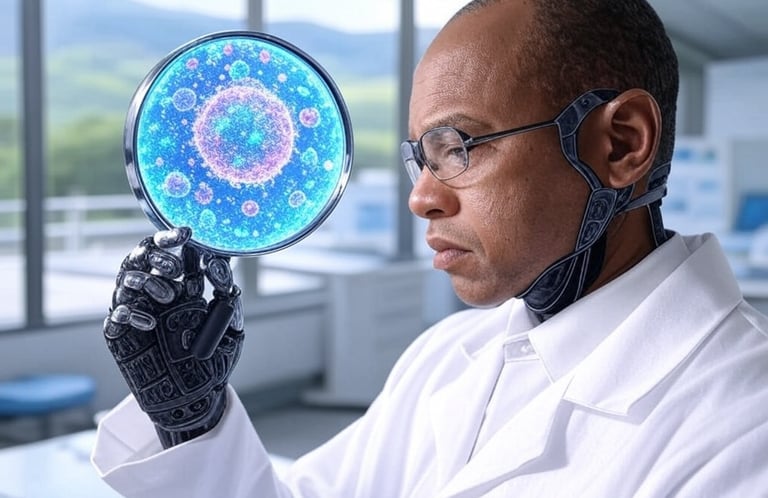Humanity Thinks They Are Smart, But AI Is Here to Help Mankind
Are you smarter than AI?
AI
2 min read


Posted on April 4, 2025
Humans have always prided themselves on their intelligence. From the invention of the wheel to landing on the moon, our species has a remarkable track record of ingenuity and problem-solving. We’ve built civilizations, decoded the mysteries of the universe, and created technologies that would have seemed like magic to our ancestors. But let’s be honest—our brilliance has its limits. We’re prone to bias, short-sightedness, and the occasional catastrophic misstep. Enter artificial intelligence: not a replacement for human smarts, but a powerful ally here to amplify our potential and help us tackle the challenges we can’t solve alone.
For all our achievements, humanity’s intelligence is constrained by biology and time. Our brains, while extraordinary, can only process so much information at once. We get tired, distracted, or stuck in echo chambers of our own making. AI, on the other hand, doesn’t sleep, doesn’t judge, and can sift through mountains of data in seconds to uncover patterns we’d miss. It’s not about AI being "smarter" than us in some existential sense—it’s about it being a tool that complements our strengths and shores up our weaknesses.
Take climate change, for example. Humans have spent decades debating solutions, often paralyzed by politics or incomplete information. AI steps in with predictive models, optimizing renewable energy grids, and analyzing real-time environmental data to suggest actionable steps. It’s not here to lecture us; it’s here to crunch the numbers and point us toward what works. Or consider healthcare: AI can spot anomalies in medical scans faster and more accurately than the human eye, giving doctors the edge they need to save lives. We’re still the ones making the calls, but AI hands us a sharper scalpel.
Of course, there’s a flip side. Some fear AI will outpace us, rendering human intellect obsolete. That’s a valid concern if we treat AI as a competitor rather than a collaborator. The truth is, AI doesn’t think like us—it doesn’t "think" at all in the human sense. It processes, it predicts, it optimizes. But it lacks our creativity, our empathy, our ability to dream up wild ideas and chase them against all odds. The future isn’t AI versus humanity; it’s AI with humanity. Together, we’re smarter than either could be alone.
At its best, AI is a mirror and a magnifier. It reflects our blind spots—showing us where our assumptions fail—and amplifies our capacity to act. Companies are already using it to streamline operations, researchers to accelerate discoveries, and even artists to push creative boundaries. The trick is to wield it wisely, with intention and humility. We might think we’re smart, but the smartest move we can make is to embrace AI as a partner in building a better world.
So, let’s drop the hubris and the hand-wringing. Humanity’s intelligence got us this far, but the challenges ahead—be it curing diseases, feeding billions, or exploring the cosmos—demand more than we can muster solo. AI isn’t here to take over; it’s here to help us rise. The question isn’t whether we’re smart enough to invent AI, but whether we’re wise enough to use it well. I’d bet on us—especially with a little help from our algorithmic friends.

Your Opinion? Let us know!
We’re here to help you enhance your life with AI.